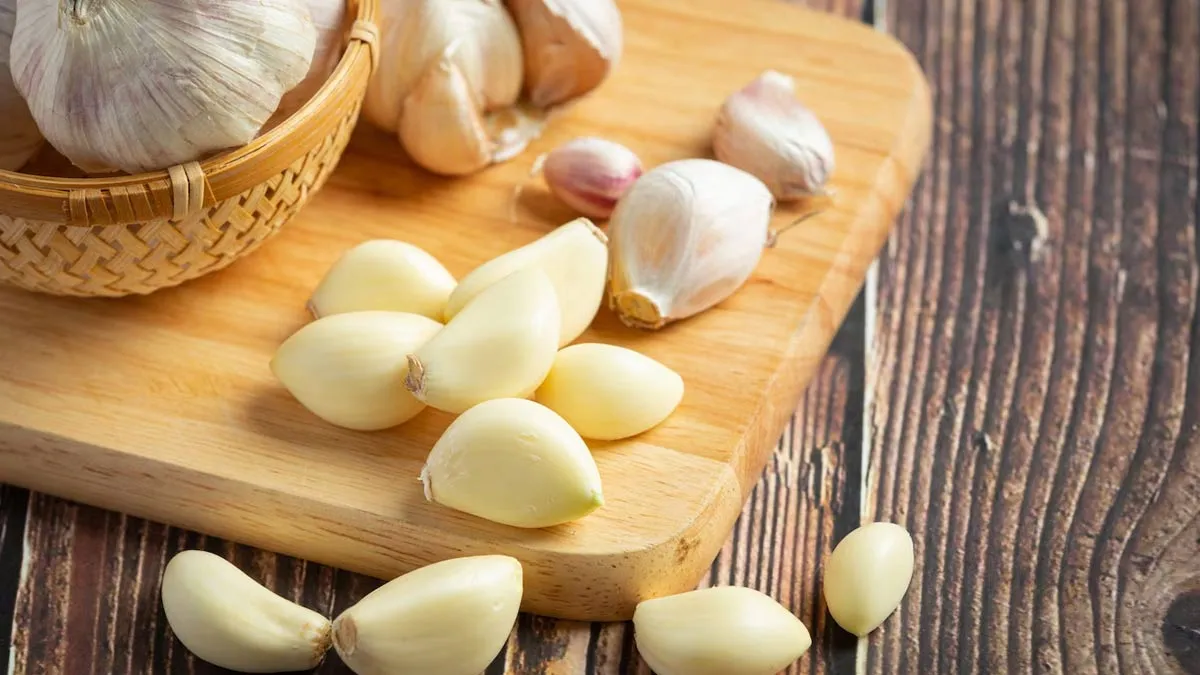
Garlic is one of the key kitchen ingredients in an Indian household. Although it has a pungent odour, not only do people use it in cooking, but some even consume it raw early in the morning, claiming that it has several health benefits, like boosting the immune system and fighting off infections. But does garlic have other advantages? Like acting as a mosquito repellent? One may think, Why not?, given its revolting smell. But let’s find out what science and experts say about the same. The OnlyMyHealth team spoke to Dr Malla Devi Vinaya, General Physician and Diabetologist, Apollo Clinic, Kondapur, to get a clear picture.
Table of Content:-
Also Read: Dengue Prevention Isn’t Just About Mosquitoes: Here Are Home And Diet Fixes That Matter Too
Garlic As A Mosquito Repellent?
While many people believe that garlic's strong smell can keep mosquitoes away, there's not much solid scientific proof to back this up. Some lab studies have found that garlic extract can kill mosquito larvae, but only at high concentrations, and that doesn't necessarily mean it's effective as a mosquito repellent in real-world or outdoor settings.
One study published in Heliyon explored using peppermint and garlic extract as a natural mosquito repellent on knit fabric. Higher concentrations of the extract showed up to 86% mosquito repellency and kill rates of up to 77%. Garlic, combined with peppermint, proved effective in repelling and killing mosquitoes, with treated fabrics also resisting fungal growth and retaining colour.
"It has been established for a very long time that garlic can have use as a natural insect repellent, and the use of garlic has some basis in science. The sulphur compounds released from garlic are excreted through the skin as a result of eating or topically applying garlic at skin level that will repel mosquitoes for several hours. The applicability or effectiveness will depend on the method of application," says Dr Vinaya. However, she also notes that garlic does not offer the reliable effectiveness of chemical insect repellents like DEET or natural insect repellents like citronella; the use of garlic does have some effectiveness.
How Can Garlic Be Used As A Mosquito Repellent?
According to Dr Vinaya, there are two possible methods for the use of garlic as a mosquito repellent, either oral or topical application; of the two methods, topical application will provide better effectiveness. This is because sulphur (or garlic) is applied at surface level on the skin, so that is where the mosquitoes land.
Some evidence suggests that certain essential oils, including garlic oil, when applied on the skin, can protect against mosquito bites. Onestudy tested 20 natural ingredients to find effective mosquito and tick repellents. Researchers measured how long each ingredient could protect against bites and crossings. They found that lotions with 10% clove oil or cinnamon oil offered the longest-lasting protection of over an hour. Garlic oil provided protection for about half an hour.
However, research suggests that eating garlic does not repel mosquitoes. In a 2005 study, participants consumed either garlic or a placebo before being exposed to lab-raised mosquitoes. The study found no significant difference in the number of bites between the two groups.
Also Read: Expert Shares 5 Easy Yet Foolproof Ways To Protect Your Kids From Malaria
Potential Risks of Topical Application Of Garlic
Speaking of some potential associated risks of topical application of garlic in its natural state, Dr Vinaya shares, “There is a risk for irritation, hives, allergies, or chemical burns simply due to the chemical load associated with garlic in its neat state.” “To mitigate the risk of irritation, we highly recommend always diluting the garlic in use with a carrier oil (i.e., coconut oil/olive oil) and also doing a patch test,” she adds.
Also consider the safety of using garlic repellent on children and pets. Never use it on sensitive skin, and try to train the pet not to lick it off; ingestion is not ideal, she concludes.
Also watch this video
How we keep this article up to date:
We work with experts and keep a close eye on the latest in health and wellness. Whenever there is a new research or helpful information, we update our articles with accurate and useful advice.
Current Version